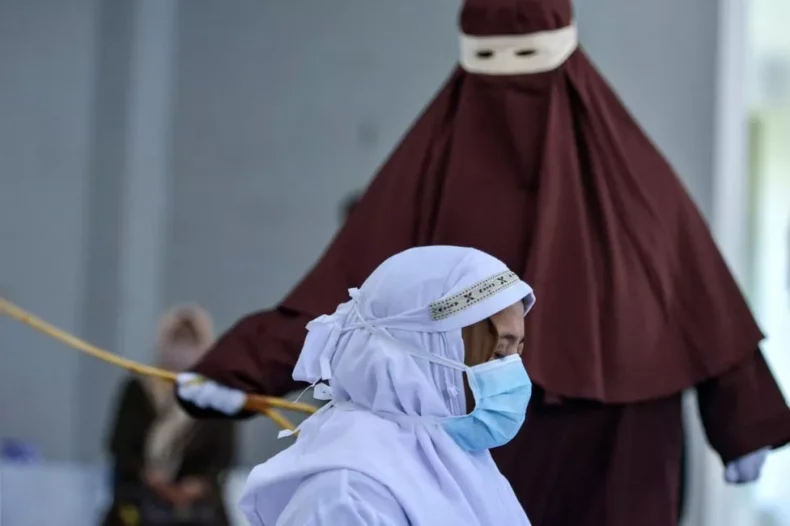The Taliban’s chief spokesperson, Zabihullah Mujahid in a tweet on Sunday said that there was now to be full implementation of Islamic Law in Afghanistan. This command was given by the elusive Hibatullah Akhundzada, ruling from the spiritual heartland of Kandahar by decree.
Under this command, there are several drastic aspects of Islamic Law that are now to be carried out, of which the most severe include flogging, public executions, and even severing limbs for committing theft.
“Carefully examine the files of thieves, kidnappers, and seditionists,” Mujahid quoted Akhundzada. “Those files in which all the sharia conditions of hudud and qisas have been fulfilled, you are obliged to implement. This is the ruling of sharia, and my command, which is obligatory.”

Hudud and Qisas
Hudud is a term that is used to refer to offenses under Islamic law that have respective punishments attached to them. Qisas mean “retaliation in kind” which translates to the famous phrase, an eye for an eye.
Hudud crimes include adultery as well as false accusations based on it, drinking alcohol, kidnapping, rebellion, robbery, and so on. Qisas covers several offenses such as deliberate injury including murder but also has a provision under which the victim’s families can accept compensation instead of punishment.
According to Islamic Law scholars, crimes leading to hudud punishment do require quite a lot of proof and they must be convincing as well. They must be witnessed by at least four males.

What does this mean for Women?
The rule of the Taliban has also seen several fallbacks for women. They have lost several rights that they had fought for over a decade to attain. Most women have lost their jobs and are forced to stay at home.
They cannot travel without an accompanying male member of their family and they have to cover themselves up with a burqa when they do so. In related news, the Taliban has also recently placed bans on women from certain public areas such as baths, parks, gyms and funfairs, and so on.
Read Also: Taliban to Respect Women’s Rights within Islamic Law
Rahima Popalzai who is a legal and political analyst thought that this command could be interpreted as an attempt by the Taliban to reinforce their reputation as a hard and ruthless regime which they feel has become softened during the time they were not in power.
Even though the Taliban had assured that there would be a much gentler rule than what had transpired between the years of 1996 and 2001, they have been imposing several stringent restrictions on various spheres, gradually curtailing freedom and movement.












